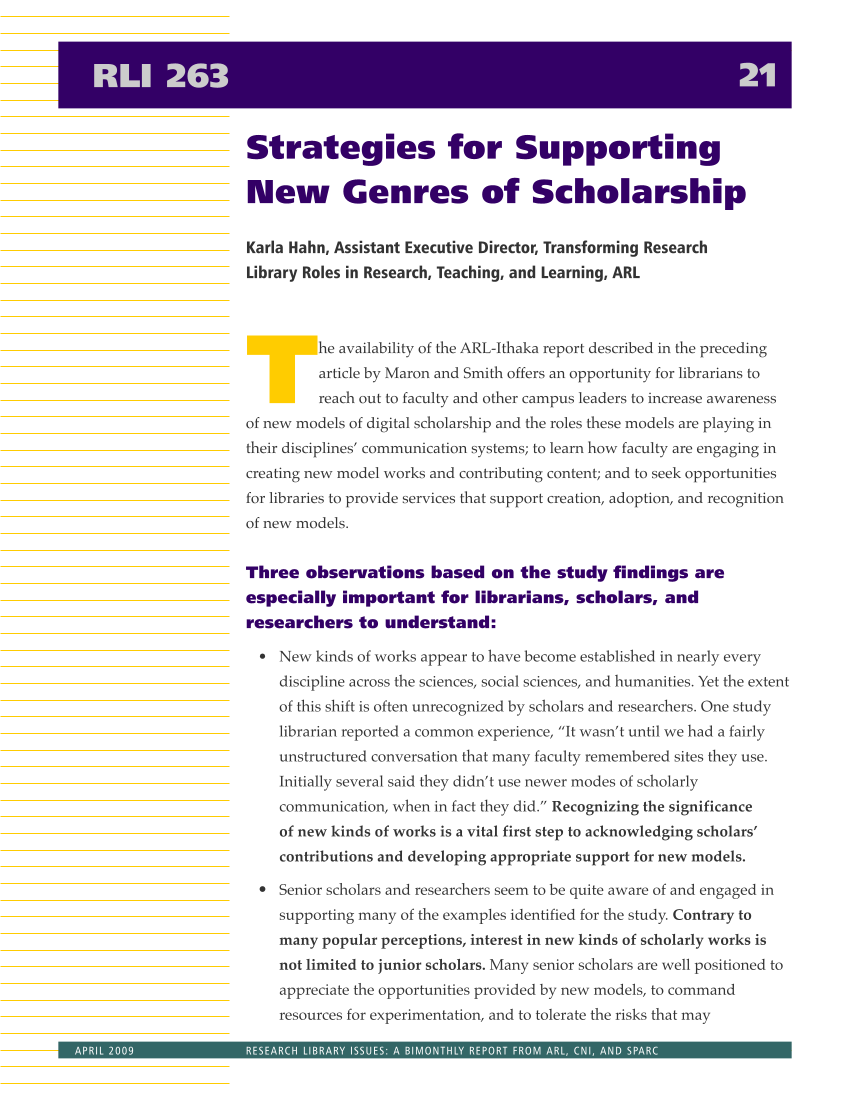Strategies for Supporting New Genres of Scholarship Karla Hahn, Assistant Executive Director, Transforming Research Library Roles in Research, Teaching, and Learning, ARL T he availability of the ARL-Ithaka report described in the preceding article by Maron and Smith offers an opportunity for librarians to reach out to faculty and other campus leaders to increase awareness of new models of digital scholarship and the roles these models are playing in their disciplines’ communication systems to learn how faculty are engaging in creating new model works and contributing content and to seek opportunities for libraries to provide services that support creation, adoption, and recognition of new models. Three observations based on the study findings are especially important for librarians, scholars, and researchers to understand: • New kinds of works appear to have become established in nearly every discipline across the sciences, social sciences, and humanities. Yet the extent of this shift is often unrecognized by scholars and researchers. One study librarian reported a common experience, “It wasn’t until we had a fairly unstructured conversation that many faculty remembered sites they use. Initially several said they didn’t use newer modes of scholarly communication, when in fact they did.” Recognizing the significance of new kinds of works is a vital first step to acknowledging scholars’ contributions and developing appropriate support for new models. • Senior scholars and researchers seem to be quite aware of and engaged in supporting many of the examples identified for the study. Contrary to many popular perceptions, interest in new kinds of scholarly works is not limited to junior scholars. Many senior scholars are well positioned to appreciate the opportunities provided by new models, to command resources for experimentation, and to tolerate the risks that may RLI 263 21 APRIL 2009 RESEARCH LIBRARY ISSUES: A BIMONTHLY REPORT FROM ARL, CNI, AND SPARC











































